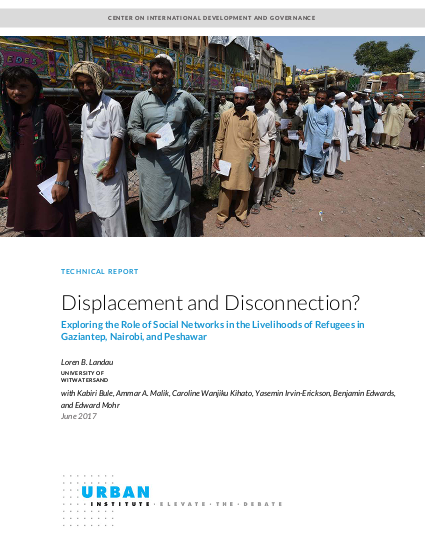
Building on original quantitative and qualitative fieldwork in three refugee hosting cities – Nairobi, Gaziantep, and Peshawar—this study explores the role of social networks in furthering or hampering displaced persons’ ability to achieve self-reliance. Experiences are diverse, but several general findings emerge:
- Group membership is remarkably low;
- Social networks are an invaluable asset for many but are either unavailable or a hindrance for others;
- The in-group networks that initially offer protection become less effective in the long-term; and
- Economic security is closely depending on people’s ability to forge connections beyond co-nationals.
Links
Resource collections
- UN Habitat - Urban Response Collection
- Urban Response - Urban Crisis Preparedness and Risk Reduction
- Urban Response Collection - Community Engagement and Social Cohesion
- Urban Response Collection - Economic Recovery
- Urban Response Collection - Environment and Climate Change
- Urban Response Collection - Housing, Land and Property
- Urban Response Collection - Urban Crisis Response, Recovery and Reconstruction
- Urban Response Collection - Urban Resilience